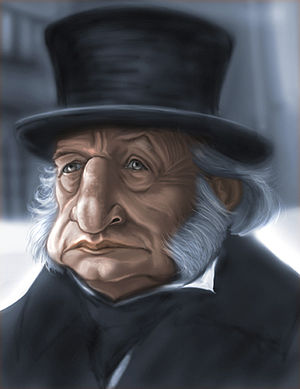Wikipedia:Wikipedia Signpost/2022-11-28/In the media
"The most beautiful story on the Internet"
Could ads turn Wikipedians into Facebook content moderators?
In a well-timed coincidence for this issue, an Australian Broadcasting Corporation Op-Ed by Nicholas Agar asked "Could ads turn Wikipedians into Facebook content moderators?". Agar, a professor of ethics, notes that with the wrong policies around content monetization, the Wikimedia Foundation could "turn Wikipedia into just another tech business using its vast store of data to pursue profit". He recommends the Foundation "ask for help, not money"... – B, J
Internet search in Russia
The BBC investigated how well internet search engines were working in Russia. Yandex has 65% of the market in Russia, followed by Google with 35%. The BBC used a virtual private network (VPN) to view search results for both search engines on controversial topics to make it appear that the search requests originated in Russia. They also used the VPN to give the origin as the UK for Google requests. All requests were typed in Russian. For example, they searched for Bucha, the Ukrainian town where hundreds of civilians were killed during the current war. Yandex search results predominantly gave links to sites following the Russian government's viewpoint. "Glimpses of independent reporting only occasionally appeared in Yandex search results with links to Wikipedia articles or YouTube." Google searches originating in Russia were a bit better, and Google searches originating in the UK gave a full range of viewpoints, even with the search requests typed in Russian. – S
Maybe not so altruistic after all
Many have told the tale of the dramatic flameout of Sam Bankman-Fried's cryptocurrency exchange FTX and sister company Alameda Research, following a series of boneheaded moves that require a couple of whiteboards to explain in full detail. Suffice it to say that there was a bunch of money, and now there isn't.
In a Washington Post article titled "The do-gooder movement that shielded Sam Bankman-Fried from scrutiny", Nitasha Tiku claims that his lost fortune may have been built – at least in part – on his connections in the effective altruism (EA) community. Bankman-Fried's net worth was estimated at $15.6 billion in early November. The bankruptcy of his cryptocurrency firms, and the devaluation of his own securities, is expected to leave him with a net worth estimated at jack shit, and one million unpaid creditors. Yowza! Tiku went further to say that there was an "EA group devoted to writing Wikipedia articles about EA"; it's unclear whether this refers to off-wiki coordination, or merely to the existence of a legitimate EA WikiProject on the English Wikipedia. – S, B, JPxG
Toaster hoax
The BBC has published an in-depth article and radio programme about the Alan MacMasters toaster hoax, featuring interviews with the protagonists as well as Heather Ford (see Book review in this issue). "How did this hoaxer get away with it for so long? And how did an eagle-eyed 15-year-old eventually manage to expose his deception?" (See also prior Signpost coverage in August's In the media, titled "Alan MacMasters did not invent the electric toaster".) – B
In brief
- "La plus belle histoire de l'Internet": Let's fight for Wikipedia says La Libre Belgique (in French), "the most beautiful story on the Internet". The article provides a pretty good one-paragraph summary of the "permanent tension" between radical inclusionists and those who see unfettered "openness as a contradiction of the principles of encyclopedism".
- Encyclopedias are fun: A journalist for Australian science magazine Cosmos shares their view on Wikipedia's position in the global information ecosystem. Do you agree that it "tap[s] the implicit expert within all of us", supplanting "experts and institutions which ring-fenced their expertise"?
- Embraced by higher ed: "Wikipedia, Once Shunned, Now Embraced in the Classroom" - Inside Higher Ed
- Sportsball: Angry Bills fans have taken over Duke Shelley's Wikipedia page (Sports Illustrated)
- "I don't think I'll ever finish": Jess Wade's interview at Mashable. Vice joined in on praising her; see also the coverage in last month's In the media
- Modern pagans want to be Pagans: The question is whether to spell the word "Pagan" with a capital "P". True believers point out that other religions have their names capitalized as proper nouns and that Wikipedians have raised the issue but failed to come to a simple answer.
- Afrikaans error: Did Charlize Theron make fun of a Wikipedia error in the number of Afrikaans speakers (from Eyewitness News (South Africa))? Or was it just an "ill-informed" statement as CNN suggested, not mentioning Wikipedia as the source of the misinformation?
- Back in the old days: In the context of a notional Twitterverse without moderation, US sportsperson Tyrese Haliburton reminisces about the old days when Wikipedia "wasn't always correct"... is someone going to break the news to him? (AP News)
- Got a turkey craving? Try Wikipedia for a taste of wildlife facts, like other people did as explained in this review of an academic report. (Mongabay via Tacoma News Tribune)
- A notable feat: A notable filmmaker Gracie Otto says "'A friend once told me that everyone I've dated has a Wikipedia page'" (Sydney Morning Herald). Perhaps she should start a notable dating service?
- "Is Wikipedia's independence at risk?" asks Volkskrant (in Dutch), covering Wikipedia fundraising and recent Wikipedia-related AI initiatives by Facebook parent Meta.








Discuss this story